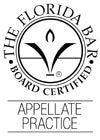
“Counsel failed to raise the argument in the trial court, and this court will not consider it on appeal.” No trial lawyer wants to see a statement like this in an appellate opinion. To avoid this kind of waiver, lawyers must be mindful of preserving errors for appellate review at all phases of litigation.
As a general rule, an appellate court will not consider an argument that is raised for the first time on appeal, and issues not raised below are deemed waived. To avoid waiver, the issue must be raised, argued and decided in the trial court. Courts look at four factors to determine whether an issue has been preserved for appeal: (1) timeliness; (2) specificity; (3) a decision by the trial court, and (4) whether there is an adequate record of the proceedings.
To satisfy the requirement of timeliness, an attorney must object at, or reasonably near, the time the error occurred. This is often called the “contemporaneous objection rule.” The purpose of this rule is to put the trial judge on notice of a possible error and afford the judge an opportunity to correct the error at the time it is made. This prevents attorneys from making tactical decisions not to challenge errors at trial, and then later seeking appellate relief if they are not happy with their trial results.
For similar reasons, the objection also must be specific enough to inform the trial judge of the alleged error. Thus, for example, to argue that a trial judge improperly excluded witness testimony, an attorney should makes a specific proffer regarding the substance of the witness’ testimony and what the attorney intends to prove as a result of that testimony. This gives the trial court the opportunity to understand and intelligently rule on the evidence at a time when the error can still be fixed.
Further, to preserve an issue for appellate review, the trial judge must rule on the issue. Although this may seem obvious, in the heat of trial a lawyer may not notice that the trial court has not ruled on all of the issues before it. Other times, the lawyer may believe the court’s ruling is implicit from other comments the judge makes. Indeed, the judge also may believe the ruling is implicit. Even if it is awkward, if the judge has not clearly ruled on an objection, the lawyer should ask the judge to clarify the ruling on the record.
Finally, to preserve an issue for appeal, there must be an adequate record of the proceedings. The trial court’s decision has the presumption of correctness and the burden is on the appellant to demonstrate error. So if there is any chance that a hearing involves an issue a party may wish to appeal, it is important to have a court reporter present at the hearing.
It is critical to consider preservation of error at all phases of the litigation. Trenam Law has attorneys experienced with litigation support and appeal, who are available to assist with any preservation issues that may arise.

